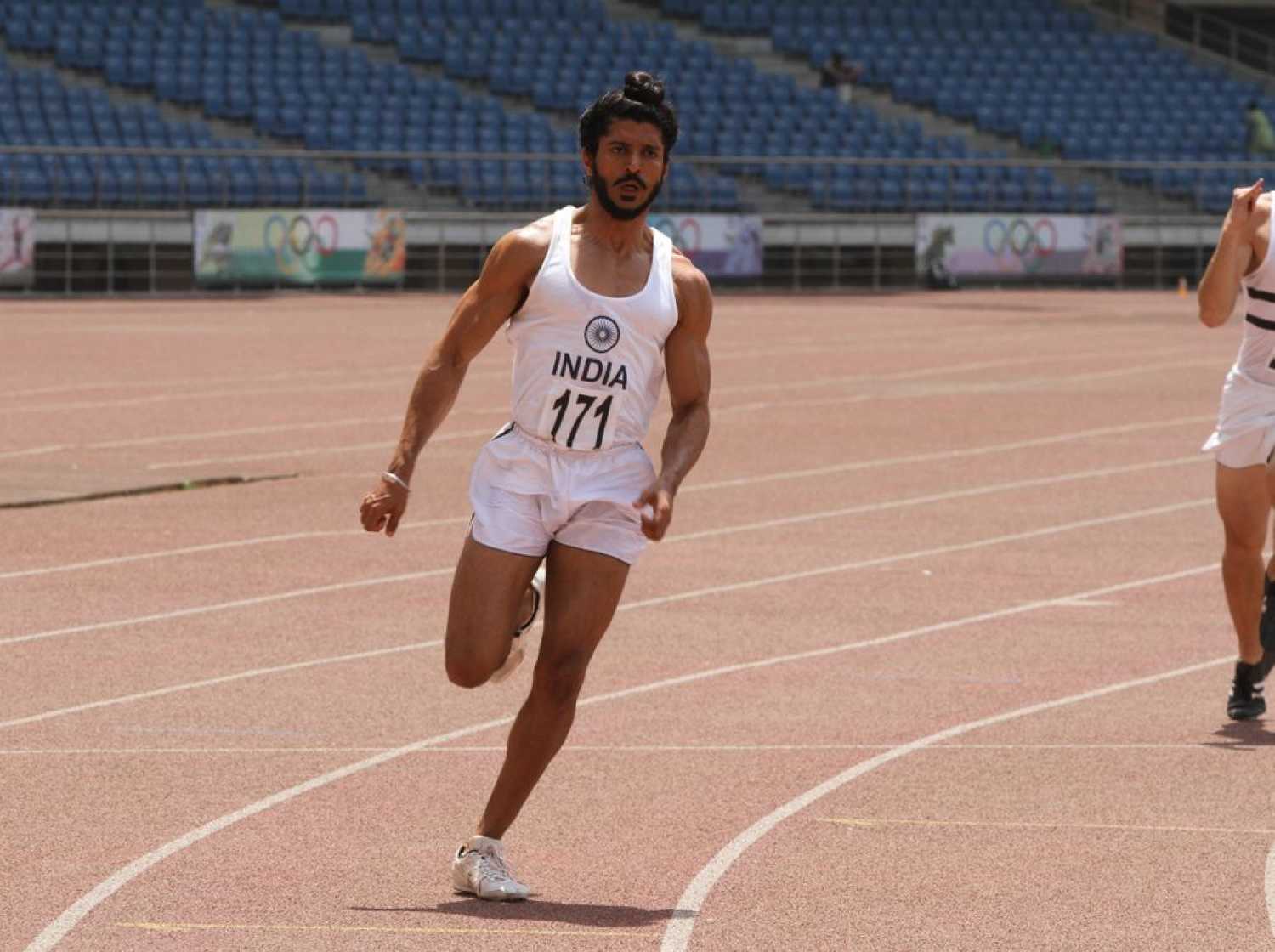In this passage from his autobiography, The Stranger in the Mirror, written by Mehra with Reeta Ramamurthy Gupta, the filmmaker reveals how a chance meeting put him on the path to making a film on the Indian sporting legend.
Book excerpt: How Rakeysh Omprakash Mehra decided to make a biopic on Milkha Singh
Mumbai - 31 Jul 2021 7:30 IST


Rakeysh Omprakash Mehra

Reeta Ramamurthy Gupta
One day, a young director, Aditya Dhar, visited me to narrate a script. This was a comedy which he wanted to direct and my company to produce. At the end of our meeting, he gave me the autobiography of Milkha Singh. Aditya went on to make Uri: The Surgical Strike, one of the biggest blockbusters of 2019, which Ronnie Screwvala produced.
I picked up the book only to realize that it was an autobiography written and self-published by Milkha Singh in Gurmukhi (Punjabi script). I immediately gave it to Rajiv Tandon to figure out if he knew someone who could read it. Tandon’s uncle Babbu Mama knew Gurmukhi. He read it and the very next day came to office and started telling me the story in the book.
Milkha had lost his childhood to Partition. He escaped and went on to cross the border and somehow reunited with his sister. What inspired me was how a 12-year-old, who witnessed the massacre of his family, was pushed and shoved into India and lived with no roof to sleep under and no food in his stomach. He then went on to create a national record in athletics that remained unbroken for 60 years! He also won a double gold medal in the Asian Games, broke the Commonwealth Games record with a gold medal, and then set a world record in 400 metres.
Milkha used to practise running at the National Stadium in Delhi, the same place where I would practise my swimming 40 years later. My coach would always inspire us with stories of the legendary Milkha, Dhyan Chand and Dara Singh. I called up Lokesh Sharma (Loki as we call him), my classmate and close buddy from SRCC [Sri Ram College of Commerce, Delhi]. Lokesh, a former sports journalist, is the author of the Wills Book of Excellence: The Olympics (1984), among others, and is now a giant name in sports management in India. He connected me to Milkha. A couple of days later, I took a flight to Chandigarh to meet one of India’s greatest athletes and his wife Nirmal Kaur (Nimmy Aunty for me).
I had a 5:30pm flight back the same evening, but when I heard what Milkha had gone through in his own words and his journey to becoming an Olympic-level athlete, I ended up staying for another seven days. He gave me a Hindi translation of his autobiography. As for me, I hadn’t even carried a toothbrush. I bought kurta-pyjamas from Khadi Bhandar and a few other essentials and checked into Taj Chandigarh.
I was completely engrossed in his story. Every morning, at 11am, Milkha would finish golfing at the Chandigarh Golf Club, wear his signature suit, red turban with matching red tie, and sit down with me at noon sharp. We would both have our first beer. We would speak over lunch until 4 pm, then meet again for an early dinner and talk some more. I would go back again the next day. Nimmi Aunty would spoil me with home-cooked meals. The couple was both receptive and courteous. Gradually, he started trusting me and poured his heart out.
During these narrations, I noticed tears in his eyes on two occasions: first, when he spoke about the massacre of his family during the ethnic violence that followed Partition, and second, when he lost the gold medal in the finals of the 400 metres at the Rome Olympics in 1960, where he was one of the favourites to win. He was leading in the 400-metre race up to 250 metres. That’s when he committed a tactical error and looked back to see how much he was leading by. In that fraction of a second, three athletes overtook him. I knew that I had found my story and that night wrote the opening scene of the film and the last scene of the film.

Excerpted from The Stranger in the Mirror by Rakeysh Omprakash Mehra, Reeta Ramamurthy Gupta with permission from Rupa Publications. Click here to buy your copy.



